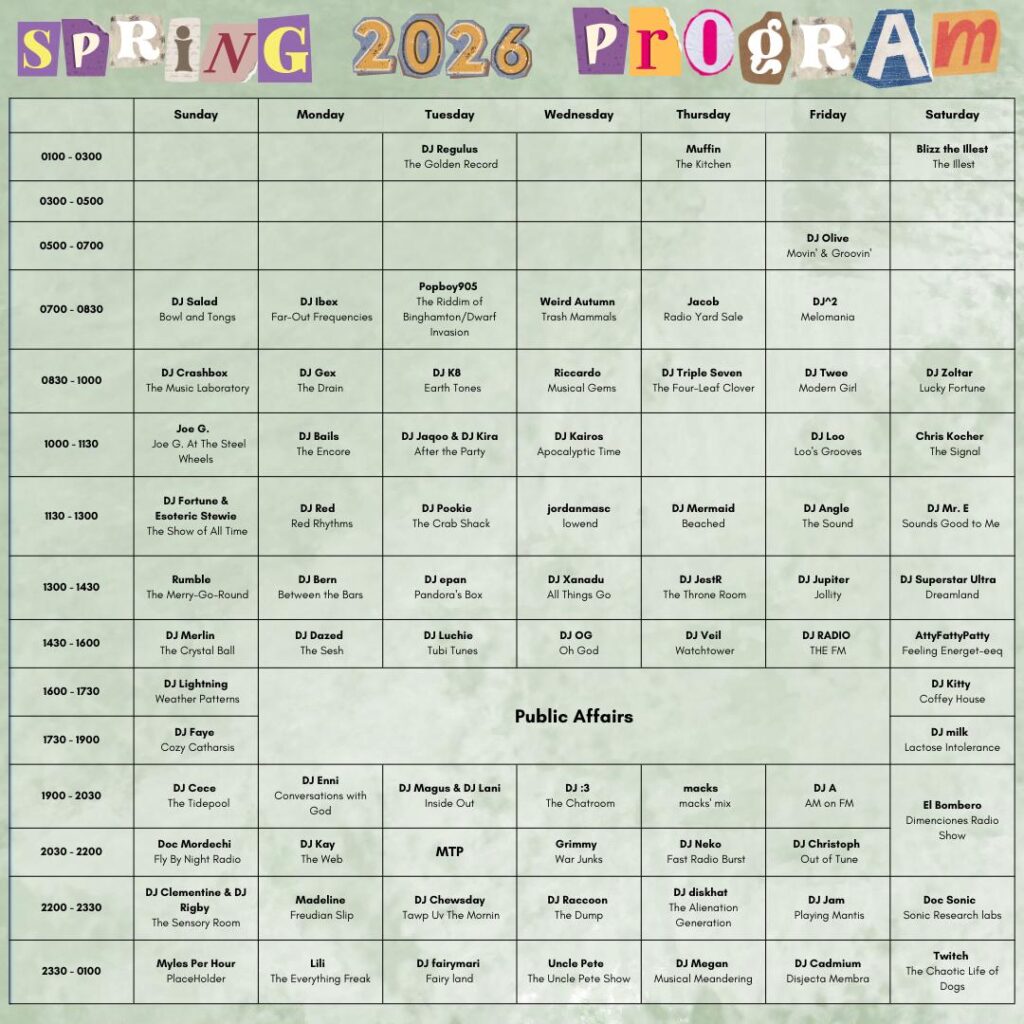Northern Soul: Motown’s Trip Across the Pond
Written by LIZ on August 9, 2020
THE BEGINNING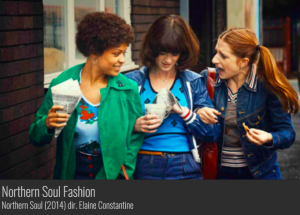
Northern Soul was a musical, fashion, and dance movement that began in Northern England around 1968 and lasted until the mid-to-late 1970s. Although short-lived, it set the stage for many of Britain’s musical movements in the coming decades and inspired a generation of Northern English kids.
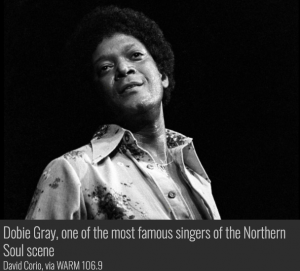
The movement emerged from the 1960s mods, starting in Manchester clubs and spreading across the industrial northern towns like Wigan and Blackpool. Young crowds were inspired by upbeat, lyrically sorrowful Motown records created in industrial Chicago and Detroit. Motown bands and singers such as Dobie Gray, Duke Browner, and The Jades were the soundtrack for all-nighters and became well-known and beloved.
THE MIDDLE
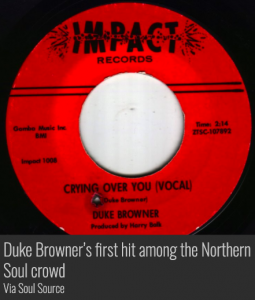
At the end of the 1960s, the UK government cracked down on clubs playing Northern Soul, as they were often hotspots for illicit activities. However, 1971 saw the revival of Northern Soul club nights in a Tunstall pub. By this time, obscure, off-market, rough records had become a fixture of the scene. Due to the finite number of records, finding and trading records from small labels or demos and B-sides was necessary for DJs wanting to keep people dancing. Some DJs would even fly to America to carry crates of records back to England! These unheard records were seen as prized possessions, as they challenged the pop charts. Records like “I Feel Alright,” by Turley Richards and “Blowing Up My Mind” by The Exciters inspired the weekend nights.

Fast-paced, soulful, and small-label Motown spoke to industrial Northern England. Eventually, these types of records were coined ‘Northern Soul’. As the movement gained momentum and recognition, some of these records began to be re-licenced and rereleased. Some Northern Soul records even made it onto “Top of the Pops” (a UK music programme): in 1971, The Tams were invited to play their 1964 song, “Hey Girl Don’t Bother Me,” which had suddenly become a number-one hit single in the UK.
THE END OF AN ERA
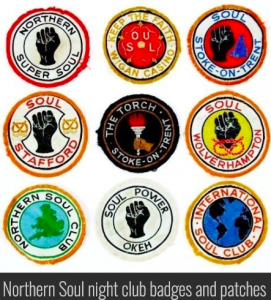 As more and more records were put back into production and targeted towards the Northern Soul crowd, the subculture became something of a new mainstream market. Some Britons tried to cover the original records (most notably the Wigan Ovations) to much derision and little success. The soul of the movement was with the original Motown records, recorded thousands of miles away. As the finite supply of records began to dwindle in the mid to late 1970s, arguments began over the correct course of action. Some wanted to keep playing the original records, while others branched out into Disco, Hip Hop, and Funk. This fissure marked the end of the golden age of Northern Soul.
As more and more records were put back into production and targeted towards the Northern Soul crowd, the subculture became something of a new mainstream market. Some Britons tried to cover the original records (most notably the Wigan Ovations) to much derision and little success. The soul of the movement was with the original Motown records, recorded thousands of miles away. As the finite supply of records began to dwindle in the mid to late 1970s, arguments began over the correct course of action. Some wanted to keep playing the original records, while others branched out into Disco, Hip Hop, and Funk. This fissure marked the end of the golden age of Northern Soul.

However, the movement lives on in hits like Soft Cell’s “Tainted Love,” a cover of Gloria Jones’ 1976 track. In addition, the wider culture and principles are said to live on in the acid house scenes of the 1980s. The Motown records of the Northern Soul movement shone a spotlight on African American musicians and created the setting for a cultural phenomenon. Northern Soul club nights still exist today, and the music remains an inspiration for many.
— Theo (Program Director)
References:
- https://www.theguardian.com/music/2011/dec/11/dobie-gray
- https://www.theguardian.com/music/2014/oct/11/northern-soul-rebellion-dance-floor-paul-mason
- https://thelongandshort.org/margins/northern-soul-club-culture
- https://www.youtube.com/watch?v=JMtaEASd2LI
- https://www.youtube.com/watch?v=U1fRdlbRlSM
- https://www.youtube.com/watch?v=dNAiKCWMv30&t=1304s
- https://www.metrotimes.com/detroit/sharing-the-gloria-jones/Content?oid=2195765
